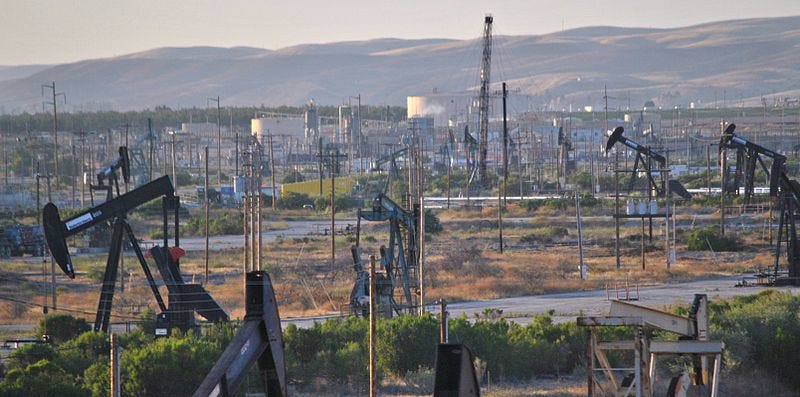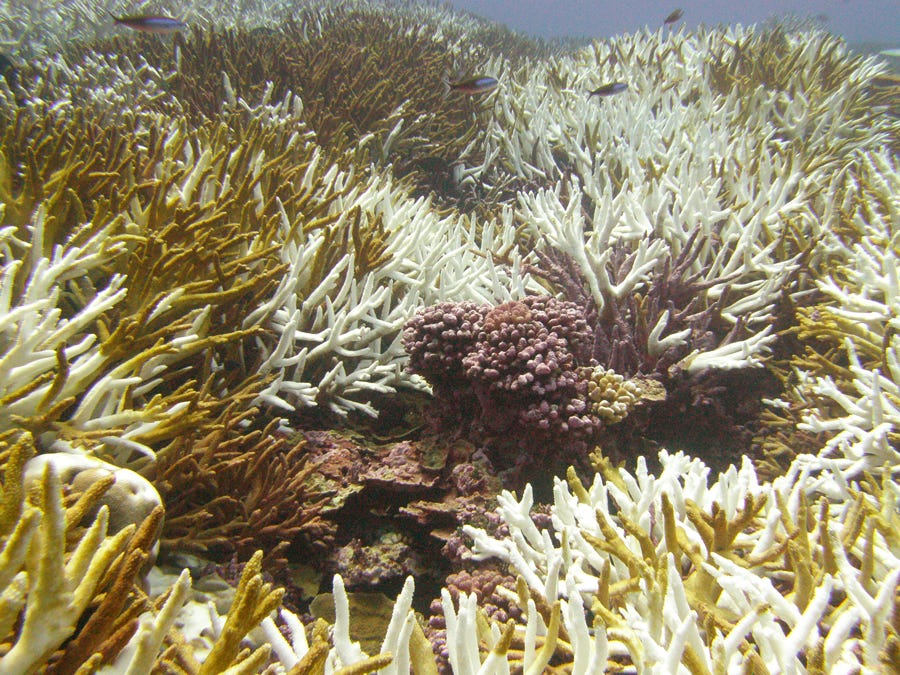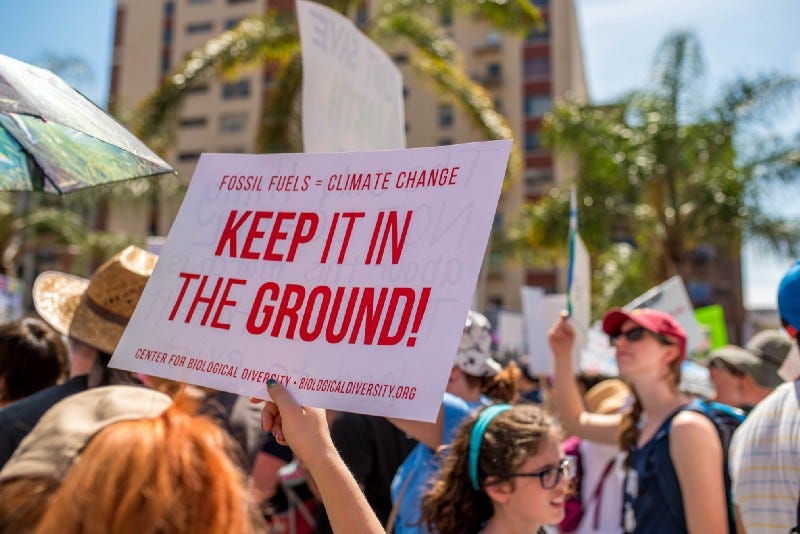Report Details Brutal Cost of Climate Inaction
If we don’t stop digging up fossil fuels, who will die?

The Intergovernmental Panel on Climate Change released a report today showing the need to limit global warming to 1.5 degrees — and the consequences if we don’t.
The
warning is clear: The world’s carbon budget is nearly overspent, and
we’re facing a future fraught with climate change-driven death and
disease.
To
reverse course and keep global warming below 1.5 degrees, we must take
swift action to keep fossil fuels in the ground. Failure to stem both
fossil fuel production and consumption will cause untold human suffering
and condemn polar bears, coral and other species to extinction.
According
to the report, the difference between just 1.5 and 2 degrees of warming
is stark. That extra half of a degree would almost entirely wipe out
coral reefs. It would cause 10 more centimeters of global sea level
rise. It would make heat waves deadlier. It would expand the range of
mosquitoes carrying disease like malaria and dengue.
Extinction
risk would increase dramatically. Of 105,000 species studied, the
number of vertebrate, insect, and plant species projected to lose over
half their geographic range would double or triple when warming
increases from 1.5 to 2 degrees.

The
report calculates that limiting global warming to 1.5 degrees would
require global net human-caused emissions of carbon dioxide to fall by
about 45 percent from 2010 levels by 2030, reaching ‘net zero’ around
2050.
This
requires a global, coordinated effort to reduce emissions across all
major sectors. The report names shifts to less meat-intensive diets,
reductions in food waste and increased building efficiency as important
emission reduction actions.
But
a rapid end to fossil fuels is key. There is more than enough carbon in
the world’s already developed oil, gas and coal fields to push us past
the Paris agreement’s goal of “well below” 2 degrees of warming. To
limit warming to 1.5 degrees, most of these fields must be shut down
before they are fully depleted, even assuming no new fossil fuel
development gets approved.
Ramping
down fossil fuel extraction has been made more difficult with a climate
denier in charge of the U.S., currently the second largest annual
carbon emitter in the world. From moving to expand drilling on public
lands and in our oceans to trying to dismantle the Clean Power Plan and
clean car rules, Trump is pushing the world closer and closer to the
edge of catastrophe.
But
equally problematic is that even some leaders at the forefront of the
fight against climate change aren’t doing enough. In fact, many are
setting the bar for climate leadership dangerously low.
For example, California’s governor Jerry Brown has continued to support fossil fuel development in his own state.
Behind
its green image, California is one of the nation’s top oil-producing
states, extracting some of the dirtiest crude in the world. Three-quarters
of the oil produced in California is at least as climate-damaging as
Canada’s tar sands crude. Yet Brown’s regulators have issued more than 20,000 permits for new oil and gas wells since the governor took office in 2011.
The
emissions from every barrel of California’s oil burned make it more
difficult to curb warming to 1.5 degrees. California must not be seen as
a model of climate policy while oil producers in the state continue to
extract millions of barrels per year of incredibly dirty crude.
Today’s
report draws a line in the sand — real climate leaders must keep it in
the ground. The choice is clear: A world that is unlivable for most of
us or a just transition to 100 percent clean energy and a safer world
for all of us.

Nenhum comentário:
Postar um comentário